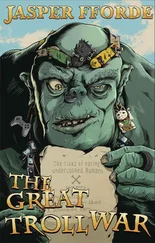1 ...6 7 8 10 11 12 ...18 The problem of adjustment can be discussed under two general headings: physical demands and discipline. Under the first come general fitness, especially condition of feet; hygiene and medical matters; and food and drink. Under the second, obedience to orders and military law; the acceptance of a strict hierarchy of ranks; and loss of freedom.
Apart from the occasional long journey by train, and the rare trip in a bus or lorry, the infantryman of 1914 travelled everywhere on his feet, the condition of which was more than a matter of purely individual concern. During the retreat from Mons, which came so soon after the start of the war, the Regular reservists of the Cameronians and the other battalions of the British Expeditionary Force became fully aware of their boots not having been well worn in and their unhardened feet, as well as shoulders unused to carrying heavy packs and other accoutrements. However unpopular, long periods of foot drill, physical exercises and route marching were a major part of preparations for joining the army in France.
As described by R. M. S. Baynes, the volunteers who rushed to join the New Army were a cross-section of the population, ranging from well-educated potential officers to the unemployed only ‘too anxious to join up and get some food and pay’. While members of the former group were normally healthy and kept themselves clean, many of the unfortunate ones at the other end of the scale were underdeveloped and had only rudimentary ideas about hygiene. Medical inspections, foot and skin inspections, inoculations, compulsory showers and other measures were applied to all, being resented by the various groups for different reasons, but accepted as an inevitable part of army life. As reaction to these basic health matters varied according to background, so did the views on army rations. Whether considered dull and inadequate by the better-off, or almost luxurious in comparison to the meagre diet of many of the poor, the basic ration scale was adequate to maintain stamina and fitness among men living unusually strenuous lives, and was more generous than most of the British population was used to.
Turning to the subject of military discipline, the first point to make is that it came as much less of a shock to most of the 1914 volunteers than it might to their few descendants in the Army almost 90 years later. Not only was British society more rigidly stratified than it is today, but at every level people holding any form of authority were expected to impose it on those below them with rigour, and in general were respected for doing so. It should be remembered that domestic servants, farm labourers and shop-workers constituted between them the major part of the working population of Britain; ‘…her farms employed more labourers than either business or her textile factories; and more men and women were engaged in paid domestic service than in all the metallurgical industries – from pin-making to ship-building – put together.’ 3In such employments hours were long and work hard, with graded levels from owner down to youngest farm-boy or kitchen-maid similar to the military hierarchy.
There were, however, places where hierarchy was not so readily understood. In those areas where the mines and heavy industry were the main employers, attitudes were different. In Glasgow and the surrounding smoke-grimed towns there were hard-faced mine and shipyard owners, with rough foremen to control the workforce, but their power was not so easily accepted. Scottish egalitarianism, supported by increasingly active trades unions, did not produce a type of man to take readily to being chased round a barrack-square. In The First Hundred Thousand ‘K1’ , a novel that was a best-seller in the war and long after, the author Ian Hay describes the reactions to military life of a Jock in the fictitious Bruce & Wallace Highlanders. Hay was in fact a captain in the Argyll & Sutherland Highlanders in 1914, commanding New Army men largely recruited from Glasgow and industrial Clydeside, and very similar to Scottish Riflemen.
‘There are other rifts within the military lute. At home we are persons of some consequence, with very definite notions about the dignity of labour. We have employers who tremble at our frown; we have Trades Union officials who are at constant pains to impress upon us our own omnipotence in the industrial world in which we live. We have at our beck and call a Radical MP who, in return for our vote and suffrage, informs us that we are the backbone of the nation, and that we must on no account permit ourselves to be trampled upon by effete and tyrannical upper classes. Finally, we are Scotsmen, with all a Scotsman’s curious reserve and contempt for social airs and graces.
But in the Army we appear to be nobody. We are expected to stand stiffly at attention when addressed by an officer; even to call him “sir” – an honour to which our previous employer has been a stranger. At home, if we happened to meet the head of the firm in the street, and none of our colleagues was looking, we touched a cap, furtively. Now, we have no option in the matter. We are expected to degrade ourselves by meaningless and humiliating gestures. The NCOs are almost as bad. If you answer a sergeant as you would a foreman, you are impertinent; if you argue with him, as all good Scotsmen must, you are insubordinate; if you endeavour to drive a collective bargain with him, you are mutinous; and you are reminded that upon active service mutiny is punishable by death. It is all very unusual and upsetting.
You may not spit; neither may you smoke a cigarette in the ranks, nor keep the residue thereof behind your ear. You may not take beer to bed with you. You may not postpone your shave till Saturday: you must shave every day. You must keep your buttons, accoutrements, and rifle speckless, and have your hair cut in a style which is not becoming to your particular type of beauty. Even your feet are not your own. Every Sunday morning a young officer, whose leave has been specially stopped for the purpose, comes round the barrack-rooms after church and inspects your extremities, revelling in blackened nails and gloating over hammer-toes. For all practical purposes, decides Private Mucklewame, “you might as well be in Siberia”.’ 4
Any comparison of the respective attitudes of those joining the forces at the outbreak of the Second World War with the rush to enlist that occurred in 1914 must be considered in conjunction with the distinctive 1939 circumstance. Unlike 1914, where an isolated, unexpected event triggered the outbreak of hostilities, there had been an air of inevitability about war with the Axis powers. It profoundly influenced the population. For the many who could recall the grim reality of the earlier conflict, there could only be apprehension. This was confirmed by the introduction of conscription in May 1939 for what was intended to be six months’ service of men aged 20, and the doubling in size of the Territorial Army. Thus when a declaration of war was made in September 1939, most felt that only force would defeat Hitler’s tyranny and that this was essential for personal and national survival. There was no headlong dash to join up, although there were many volunteers. Recruiting was much more orderly than in 1914. This was only in relative terms, as the Depots struggled to cope with the recall of reservists, the conscripts already being trained, the established and newly formed Territorial units, in addition to the volunteers.
In many ways the recruit of the 1939–40 era faced less of a culture shock initiation into the disciplines of service life. Most who were conscripts, either of the May 1939 group or immediately after the outbreak of hostilities, had a much better preparation than their 1914 predecessors. Virtually all had parents or relatives who had served in that conflict. While many of this generation refused to recount tales of their time in the trenches – the memory often painful to recall – talk about service life in general was less difficult. The cinema, radio and improvement in literacy had given a much clearer picture of what to expect, as well as an indication of the true nature of Nazism and the consequences for those who failed to stand against it. Of his first impressions, an anonymous reservist wrote:
Читать дальше












